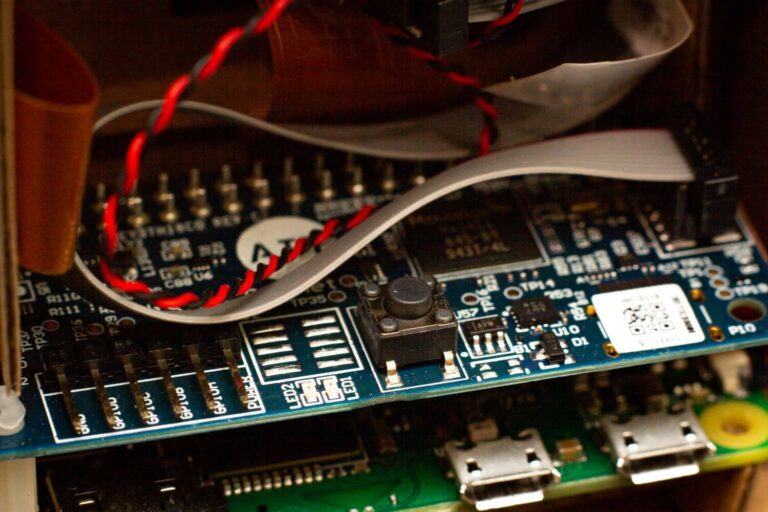PTZ cameras in comparison: Sony FR7 vs. Canon CR-N500
The requirements for professional streaming productions have changed fundamentally in recent years. Whereas static camera positions and a large crew

The perfect live stream – smooth, razor-sharp and without delays – is a must today, whether for conferences, sporting events or social media. But how do you turn a simple camera recording into an exciting real-time experience for viewers? The key lies in the encoder: an often invisible but indispensable technology that transforms raw video data into a streamable format. From hardware to software, choosing the right encoder determines the quality and stability of your broadcast and ensures that your message is delivered without technical hurdles. In this article, you will learn how encoders work, what the differences are and why they are essential for successful live streaming.
An encoder is a device or software that converts video and audio files into the correct format for live streaming. The files recorded by a camera are usually very large and require a lot of storage space. An encoder reduces the size of these files by compressing them without affecting the quality too much. This makes the video easier to transmit over the Internet and viewers can watch it without interruptions or delays. The quality of the stream and the stability of the connection therefore depend heavily on the performance of the encoder – the better it is set, the smoother the transmission.
A stable Internet connection is of course a basic requirement. Our partners at Stream1 are increasingly relying on Starlink for this. You can read more about this here.
Without compression by the encoder, the original video would consume so much bandwidth that it could not be played stably on many internet connections. The encoder reduces the size of the file without significantly affecting the quality so that it can be streamed without any problems. The encoder also automatically adapts the video to the Internet connection and the viewer’s device. This means that the stream works smoothly even with slower connections. This reduces the load on the servers and ensures error-free playback of the video on various streaming platforms.
Encoders can be divided into two main categories: Hardware and Software. Hardware encoders are physical devices specifically designed for encoding audio and video. These devices are particularly suitable for professional applications that require high video quality and constant reliability. They are often used at large events such as concerts or conferences where consistent video quality and minimal latency are important. In contrast, software encoders work as applications on computers or mobile devices. These encoders offer greater flexibility and are the ideal choice for those looking for a versatile solution that is suitable for numerous situations.
Good image quality is particularly important for the live streaming industry, as it ensures that the audience can enjoy the video clearly and without interruptions. A high-quality encoder plays a crucial role in this: it ensures that the video runs smoothly and is displayed in optimum resolution. As not all viewers have a fast and stable internet connection, a good encoder automatically adjusts the video quality to the respective network speed. This means that even users with slower connections can watch the stream in an acceptable quality. Especially for live broadcasts of events such as sporting events or webinars, it is important that the “latency” – i.e. the delay between the actual event and the broadcast – remains as short as possible. A high-performance encoder helps to minimize these delays and thus improve the experience for viewers.
Encoders are at the heart of live streaming and ensure that the transmission is stable, of high quality and easily accessible for viewers. Whether you are streaming a large corporate event, a product presentation or a concert on location – with the right encoder, the audience can be reached professionally and reliably. Hardware encoders offer high quality and reliability, but are often more expensive and require a larger initial investment. Software encoders, on the other hand, are cheaper and more flexible, but require a powerful computer and can lead to delays if set up incorrectly. A basic understanding of live streaming will help you make the right decisions. We will be happy to work with you to determine which solution best suits your requirements.
Call us today on 089 41 453 50 and let us advise you individually to find the perfect encoder for your needs!
The requirements for professional streaming productions have changed fundamentally in recent years. Whereas static camera positions and a large crew
Streaming, podcasting and content creation have become increasingly important in recent years. Whether for professional live productions, YouTube channels or
You know the problem: you’re faced with a tangle of HDMI cables and wonder if there isn’t a more elegant